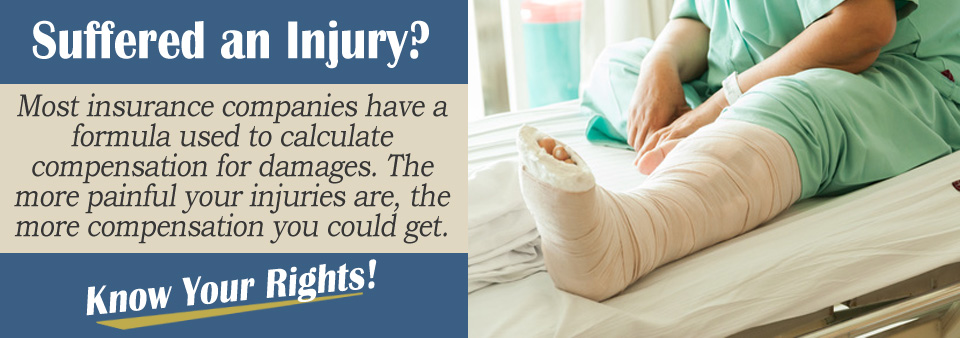If you have an accident and are injured, then you may have to make a claim against an insurance policy. Sometimes, this may be your own insurance policy or it may be another person’s insurance policy.
Unfortunately, it is common for insurance coverage to be insufficient, especially if the injury is severe. In all cases where you believed that you were not personally at fault, you should contact a personal injury attorney who can help you with a claim.
You Were to Blame but What Was Covered?
If your injuries were definitely your fault, then you are most likely to turn to your own insurance carrier to try and claim compensation. Insurers are notorious for being cautious when making payments.
It often comes down to the type of insurance cover you have or don’t have. For example, if you are walking down a sidewalk and are gazing at your reflection in a store window and don’t notice an obstacle in your path, you could easily fall over and injure yourself.
Some injuries of this type could be serious and you could end up in hospital. Any kind of broken limb or dislocated shoulder, hip, or other joint could become expensive, especially if you are unable to be fit enough to go back to work.
With no reason to blame anyone else, you probably only have your own health insurance to claim against. This can be a very doubtful prospect if the insurer probes the reason why you fell over. They may allege you were careless, or even drunk, or under the influence of drugs, even if you weren’t.
The health insurer may stipulate a cap on the amount they are prepared to pay, or have exclusion clauses that get them out of paying. The bottom line is to check the fine print of your health insurance before paying the bill and look for the best option for your buck in case you have a spill.

Your Injury Was Caused by Someone Else’s Negligence
If you were injured through no fault of your own, then you are most likely to file a personal injury claim against whoever you believe to be at fault. Typically, you file the claim with the at-fault party’s insurer, if they have one.
If it is a car accident, for example, then you would file the claim with the other driver’s vehicle insurance provider, unless you are in a no-fault state. Only if your injuries are judged to be severe, such as spinal or brain injury, would a personal injury claim be allowed in a no-fault state.
If you slipped over in a store and think that the accident was due to negligence on the part of the store, then you would file a claim for compensation with the store’s own insurer based on premises liability insurance that the store should have. In either case, you must prove that the injury you received was due to negligence. Insurers are not keen on paying anything and may dispute your account of events.
In some states, like Virginia, even if you are only a little bit to blame yourself, then this could result in your claim being dismissed altogether. Each state sets the rules for liability, but insurance carriers are well aware of what they can get away with to avoid paying compensation.
Use an Experienced PI Lawyer if Experiencing Obstruction by an Insurer
If you think that you are going to have a problem convincing an insurer that they have the duty to pay you full compensation for an injury caused by their client, you should discuss the matter with an attorney first. In most cases, personal injury attorneys provide free initial consultations and if they take on your case, will defer legal fees until a settlement is reached. To consult with a personal injury lawyer today, complete the Free Case Evaluation on this page.